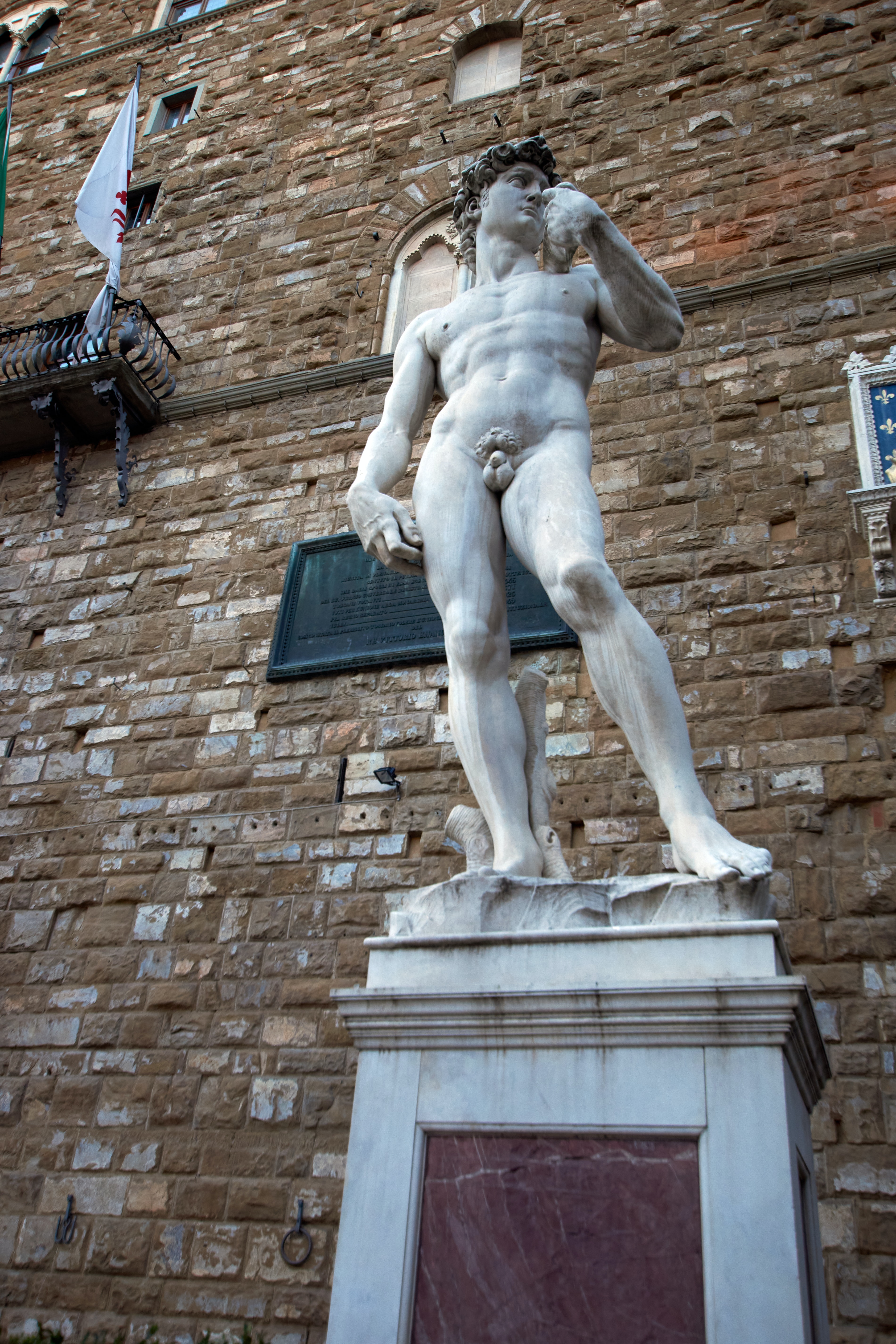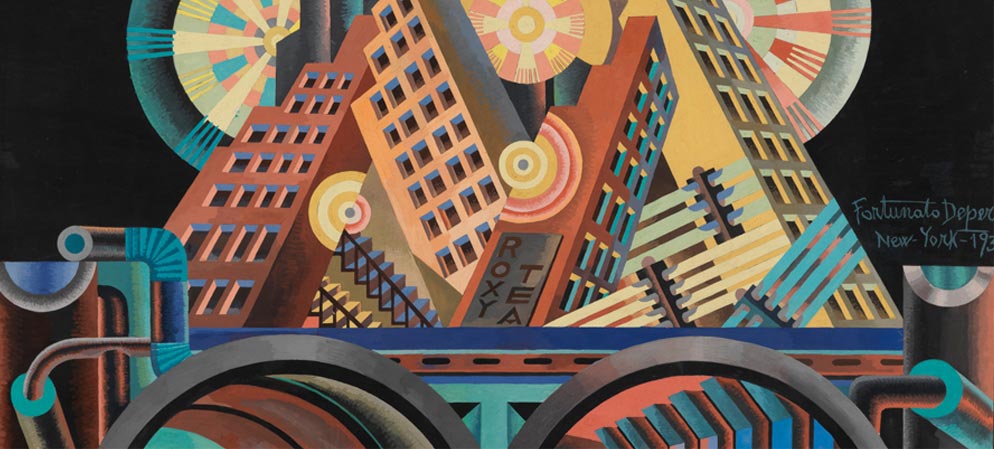Kallie Hoffman
Kallie Hoffman
Italy was at the forefront of creative and intellectual development during the Renaissance, which drew from the brilliant minds of the Greeks and the Romans. Art became a representation of the Italian culture, and it often reflects an important theme or message. All artists, both modern and in the past, have incredible patience and determination, and the beauty they have created has allowed art to become an important industry in Italy.
Visual Arts
Characterised by light and color with intricate attention to detail and specific features, the great names of visual artists include Michelangelo (sculptor), da Vinci (Renaissance painter), Donatello (Gothic), Bernini (sculptor), and Brunelleschi (Renaissance architect). Then came futurism art, emphasising the speed and energy of machines and contemporary life. This movement was led by Filippo Marinetti, Umberto Boccioni, and Giacomo Balla. Finally, there was a modern twist on art, with a rejection of conservative values and the embrace of different shapes and colors.
Renaissance

Leonardo da Vinci's Mona Lisa, image courtesy of Unsplash

Michelangelo's David, image courtesy of Unsplash
Futurism

Italian Futurism, Image Courtesy of Guggenheim
Modern

Image Courtesy of Steve Johnson, from Unsplash

Image Courtesy of Wilhelm Gunkel, from Unsplash
Theater 🎭 🎟
There are a large number of theaters in Italy, and most are privately owned. But, the three main public theaters, funded by the state, include the Italian Theater Board (Milan), the Institute for Italian Drama, and the National Institute for Ancient Drama (Sicily). Today, the primary productions are contemporary, but there are still many revivals staged.
Film 🎬 🎥 🎞
Italy's prominent film industry did not start to take off until the 1950s...
Film Timeline
- The 1950s—Neorealism: a shift away from the escapism genre that took place during WWII toward a genre that revealed the gruesome truth of post-war Italy- Ex. Works of Roberto Rossellini (Germany, Year Zero; Open City; Voyage to Italy) + Vittorio De Sica (The Children are Watching Us; Bicycle Thieves)
- The 1960s—Rome became a center for film and attracted celebrities and paparazzi- Ex. L'avventura, Before the Revolution
- The late 1900s—Italian film fell into a recession ☹️- Ex. L'avaro, Demonia
- The early 2000s—Cinema and television companies such as RadioTelevisione Italiana (RAI) and Fininvest revamped the film industry and now produce both Italian and non-Italian films every year- Ex. Bread and Tulips, The Consequences of Love
Popular Films:
- La Dolce Vita (1960)—Il personaggio principale Marcello Rubini ha un approccio spensierato alla vita mentre vive a Roma. Il film inizia dopo la morte della sua ragazza e lo segue mentre insegue due nuove donne
- Morte a Venezia (1971)—Gustav von Aschenbach, compositore, va a Venezia per motivi di salute. Trova la bellezza in città e diventa ossessionato da un giovane ragazzo polacco che gli permette di trovare la bellezza della vita e l'importanza della sua vita
- Cinema Paradiso (1990)—Il giovane Salvatore Di Vita scopre di poter sfuggire alla sua vita colpita dalla guerra attraverso l'amore per il cinema. Poi, quando si innamora di una ragazza, deve decidere se perseguire il suo cuore o l'opportunità di una vita più grande
- —Guido e suo figlio sono separati dalla loro famiglia e costretti a un campo di concentramento. Guido è determinato a proteggere suo figlio dagli orrori del campo, quindi convince il ragazzo che tutto è solo un gioco
Strive for Five Vocab: Adjectives Edition 🔑 🔑
- Bellissimo/a - beautiful
- Grandioso/a - great
- Eccezionale - excellent
- Stomachevole - revolting
- Piacevole/spiacevole - pleasant/unpleasant
- Enorme - enormous
- Stretto/a - narrow
- Meraviglioso/a - wonderful
- Straordinario/a - extraordinary
- Immenso/a - huge
- Orribile - horrible
<< Hide Menu
Kallie Hoffman
Kallie Hoffman
Italy was at the forefront of creative and intellectual development during the Renaissance, which drew from the brilliant minds of the Greeks and the Romans. Art became a representation of the Italian culture, and it often reflects an important theme or message. All artists, both modern and in the past, have incredible patience and determination, and the beauty they have created has allowed art to become an important industry in Italy.
Visual Arts
Characterised by light and color with intricate attention to detail and specific features, the great names of visual artists include Michelangelo (sculptor), da Vinci (Renaissance painter), Donatello (Gothic), Bernini (sculptor), and Brunelleschi (Renaissance architect). Then came futurism art, emphasising the speed and energy of machines and contemporary life. This movement was led by Filippo Marinetti, Umberto Boccioni, and Giacomo Balla. Finally, there was a modern twist on art, with a rejection of conservative values and the embrace of different shapes and colors.
Renaissance

Leonardo da Vinci's Mona Lisa, image courtesy of Unsplash

Michelangelo's David, image courtesy of Unsplash
Futurism

Italian Futurism, Image Courtesy of Guggenheim
Modern

Image Courtesy of Steve Johnson, from Unsplash

Image Courtesy of Wilhelm Gunkel, from Unsplash
Theater 🎭 🎟
There are a large number of theaters in Italy, and most are privately owned. But, the three main public theaters, funded by the state, include the Italian Theater Board (Milan), the Institute for Italian Drama, and the National Institute for Ancient Drama (Sicily). Today, the primary productions are contemporary, but there are still many revivals staged.
Film 🎬 🎥 🎞
Italy's prominent film industry did not start to take off until the 1950s...
Film Timeline
- The 1950s—Neorealism: a shift away from the escapism genre that took place during WWII toward a genre that revealed the gruesome truth of post-war Italy- Ex. Works of Roberto Rossellini (Germany, Year Zero; Open City; Voyage to Italy) + Vittorio De Sica (The Children are Watching Us; Bicycle Thieves)
- The 1960s—Rome became a center for film and attracted celebrities and paparazzi- Ex. L'avventura, Before the Revolution
- The late 1900s—Italian film fell into a recession ☹️- Ex. L'avaro, Demonia
- The early 2000s—Cinema and television companies such as RadioTelevisione Italiana (RAI) and Fininvest revamped the film industry and now produce both Italian and non-Italian films every year- Ex. Bread and Tulips, The Consequences of Love
Popular Films:
- La Dolce Vita (1960)—Il personaggio principale Marcello Rubini ha un approccio spensierato alla vita mentre vive a Roma. Il film inizia dopo la morte della sua ragazza e lo segue mentre insegue due nuove donne
- Morte a Venezia (1971)—Gustav von Aschenbach, compositore, va a Venezia per motivi di salute. Trova la bellezza in città e diventa ossessionato da un giovane ragazzo polacco che gli permette di trovare la bellezza della vita e l'importanza della sua vita
- Cinema Paradiso (1990)—Il giovane Salvatore Di Vita scopre di poter sfuggire alla sua vita colpita dalla guerra attraverso l'amore per il cinema. Poi, quando si innamora di una ragazza, deve decidere se perseguire il suo cuore o l'opportunità di una vita più grande
- —Guido e suo figlio sono separati dalla loro famiglia e costretti a un campo di concentramento. Guido è determinato a proteggere suo figlio dagli orrori del campo, quindi convince il ragazzo che tutto è solo un gioco
Strive for Five Vocab: Adjectives Edition 🔑 🔑
- Bellissimo/a - beautiful
- Grandioso/a - great
- Eccezionale - excellent
- Stomachevole - revolting
- Piacevole/spiacevole - pleasant/unpleasant
- Enorme - enormous
- Stretto/a - narrow
- Meraviglioso/a - wonderful
- Straordinario/a - extraordinary
- Immenso/a - huge
- Orribile - horrible

© 2024 Fiveable Inc. All rights reserved.